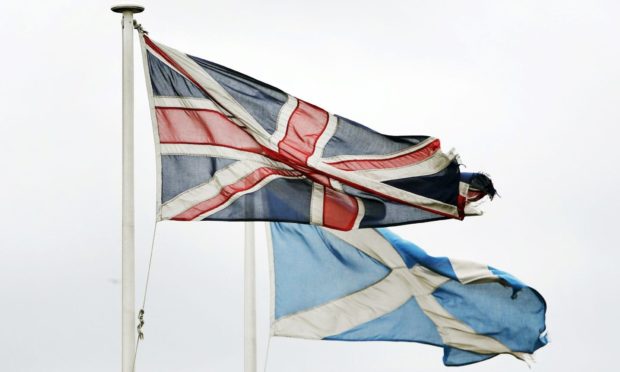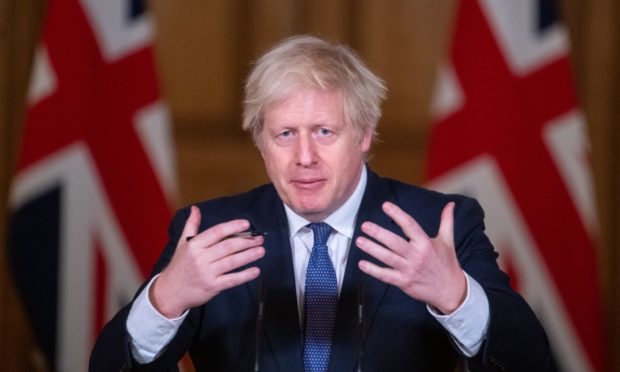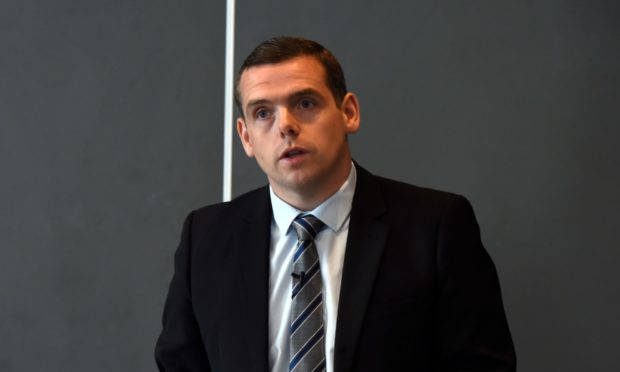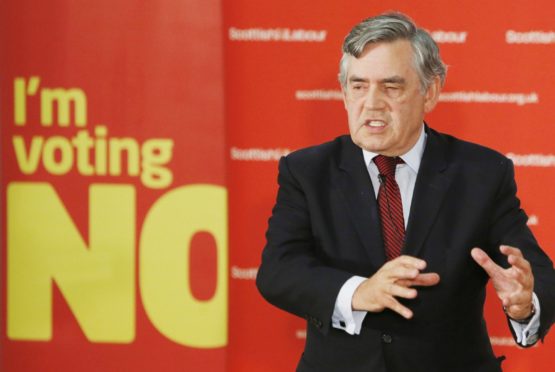Boris Johnson’s aides have dismissed SNP plans to bypass Westminster and hold a second independence poll, saying such a move would go “beyond the powers” given to Nicola Sturgeon by the devolution settlement.
The comments came after the SNP announced a second independence referendum would be held, with or without a section 30 order, if May’s Holyrood elections returned a pro-independence majority.
Scottish Government constitution secretary Mike Russell said his party would challenge Westminster to “take legal action to dispute the legal basis of the referendum and seek to block the will of the Scottish people in the courts”.
Mr Johnson, who will visit Scotland on Thursday to make the case for the Union, sidestepped questions over the SNP plan.
Instead, the prime minister highlighted the AstraZeneca coronavirus vaccine as being a prime example of the “strengths and advantages” of the United Kingdom.
His official spokesman later said the prime minister’s opposition to a second referendum is “extremely clear” and that staging a vote is “beyond the powers of the Scottish parliament”.
He said: “Holding an independence referendum goes beyond the powers of the Scottish Parliament.
“Scotland had a referendum on this issue and the people of Scotland voted to stay part of the United Kingdom.”
‘The gold standard’
Scottish Tory leader Douglas Ross said if such a referendum did occur, Scots should “boycott” it.
Mr Ross, in a Q&A with the Centre for Policy Studies think tank, hit out at the plan, saying: “I would absolutely boycott that.
“We were told the 2014 referendum was a gold standard of referendums, Nicola Sturgeon accepted that, if that is the gold standard, then no one – not just those who believe in the Union, but those who believe in democracy – should enter into wildcat referendums.”
‘Shared purpose and values’
The Moray MP said continued debate over a second poll is “wasting time and resources, when our focus should be on defeating Covid-19.”
The comments came as former prime minister Gordon Brown used a newspaper column to argue the UK risked becoming a “failed state” if the Union is not reformed.
Mr Brown called on the prime minister to consider ideas like replacing the House of Lords with a “senate of the regions” and to review the way the UK is governed in a bid to save the Union.
Asked about the remarks, Mr Ross said: “I’ve followed what Gordon Brown and others have said, but what I’m really interested in is the fight we’ve got here in Scotland in the next few months.
“We have an opportunity to challenge the SNP on their record in government because, after 14 years, there are many areas that they have let down in Scotland.
“They should be fighting to protect jobs and they should be fighting to help the businesses who are struggling to survive, rather than fighting for another divisive independence referendum.”
Asked what action UK ministers could take to “take the fight” to the SNP, he added: “I think the most useful thing is to end the defeatism.
“Defeatism and disinterest in Union was one of the worst things for our support here in Scotland, people who already believe that the Union has somehow lost the argument in Scotland are wrong; I don’t believe independence is inevitable.
“I think we’ve got a very strong, passionate, positive case to deliver for Scotland’s place in the Union, we just need to ensure that all unionists believe that.”
‘Stronger together’
His call comes a day after The Sunday Times published the results of opinion polls in the four nations of the UK, which found a majority of voters think Scotland is likely to be independent in the next 10 years.
In Scotland, the poll found that 49% backed independence compared with 44% against – a margin of 52% to 48% if the undecideds are excluded.
Health Secretary Matt Hancock, asked about the polls by us at today’s Downing Street press conference, responded: “We’re so much stronger together.
“It means an awful lot to me and my English UK colleagues, in the UK Government, that we are one union that can pull together when things get difficult.”
He said the vaccine rollout was a “real example of this country firing on all cylinders”.



